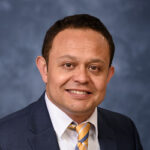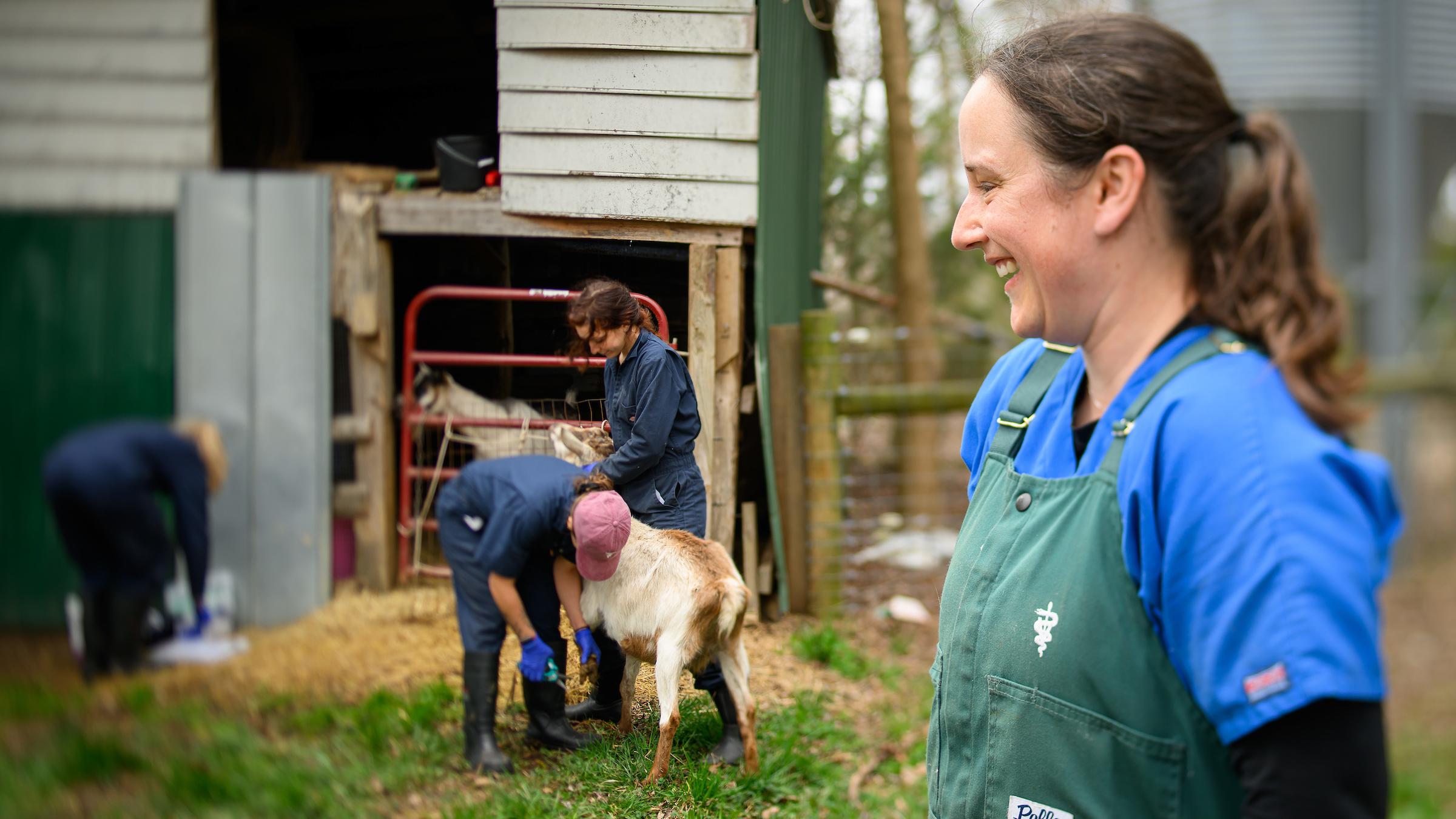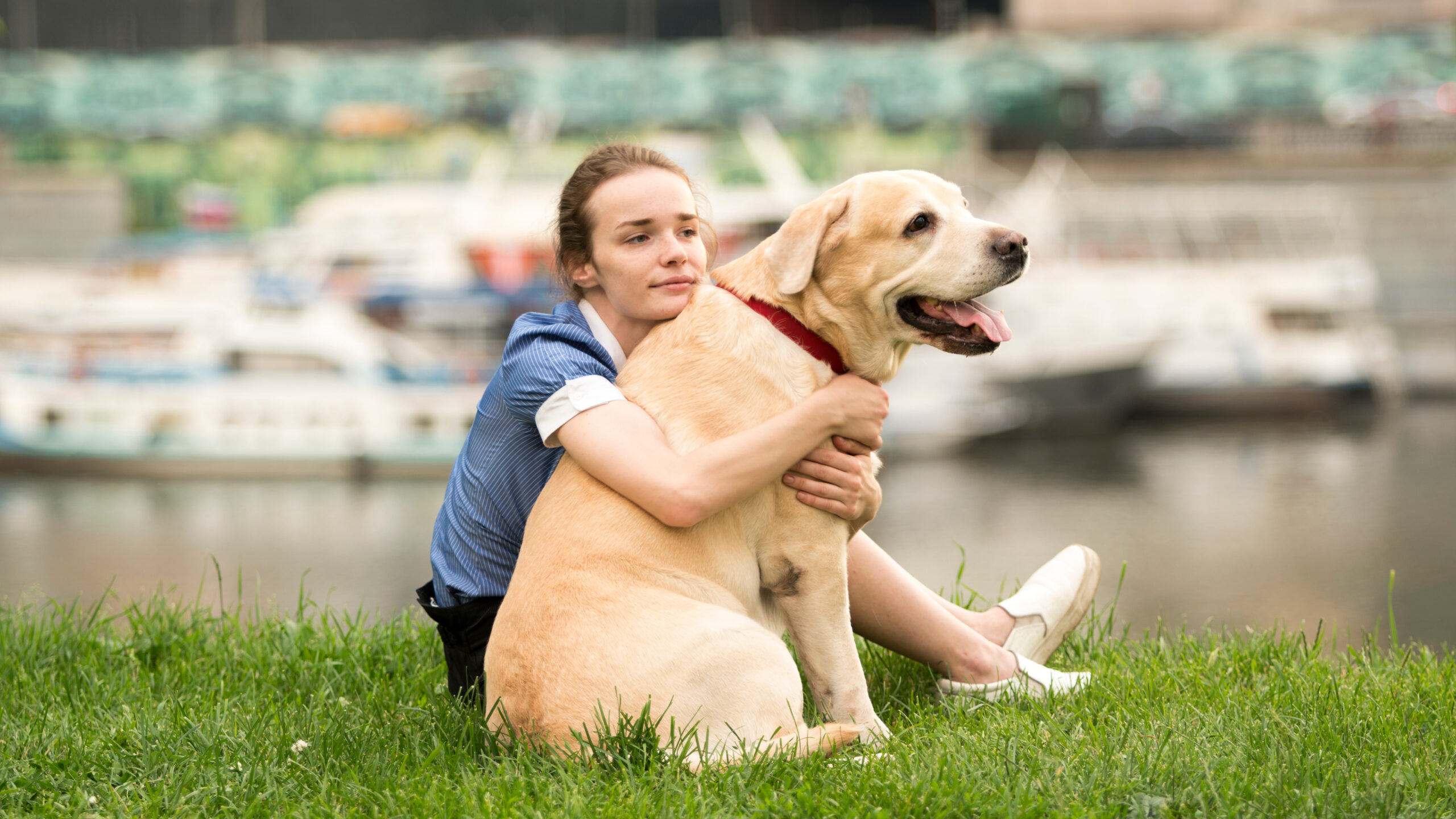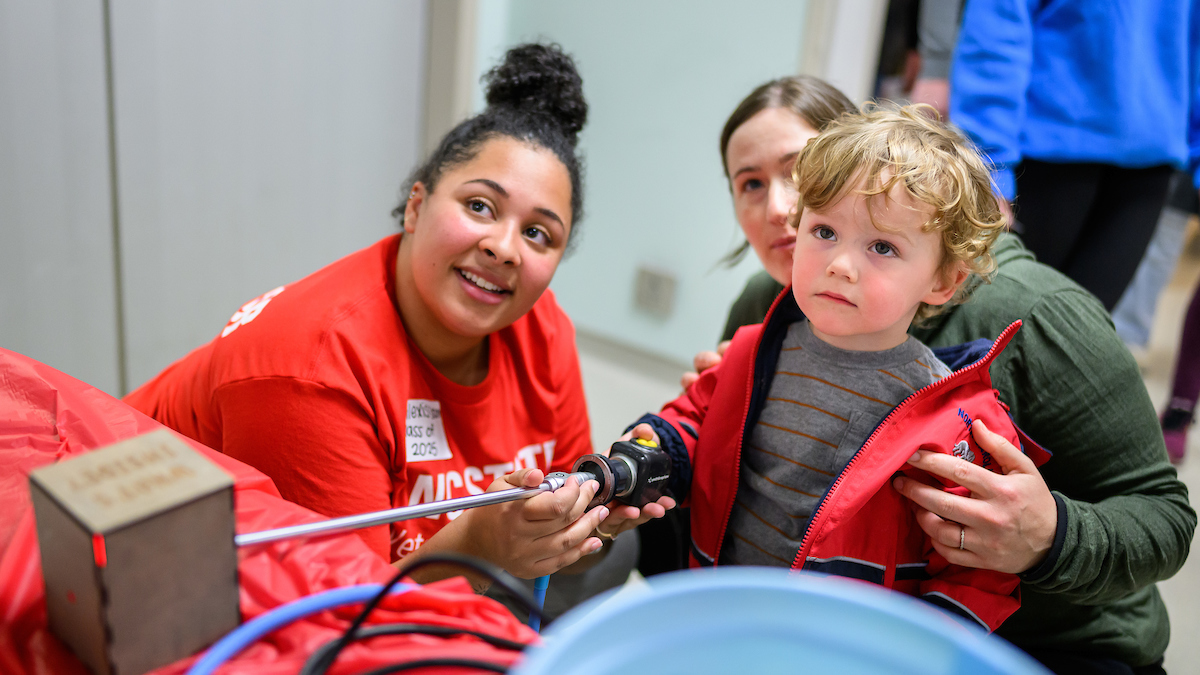College of Veterinary Medicine Expands Critical Dental and Oral Surgery Program
A second dentistry and oral surgery professor started work last month and the college's first resident in the field arrives this week.
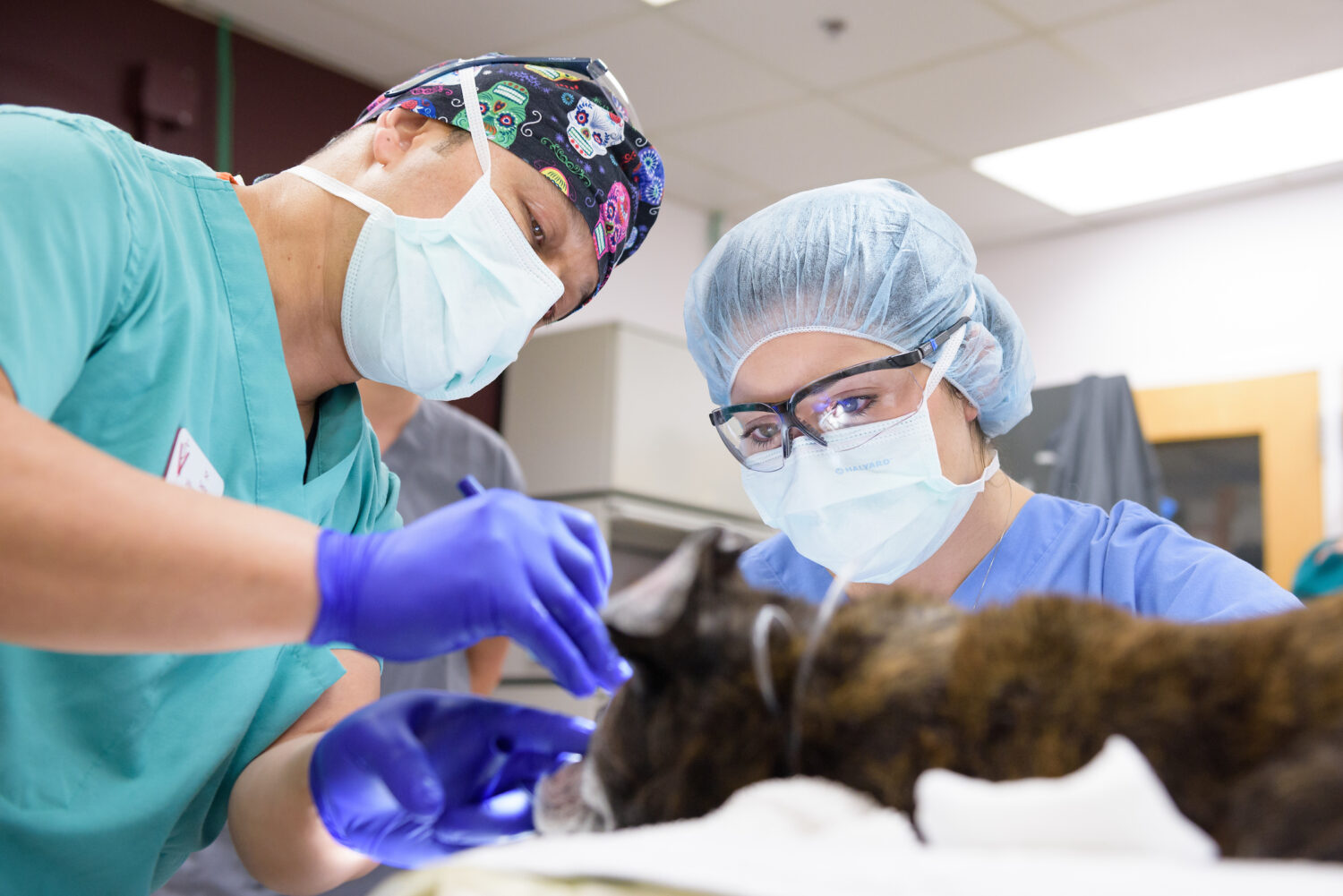
As the demand for specialized training in veterinary dentistry and oral surgery continues to increase, the NC State College of Veterinary Medicine is ramping up its program, adding a second dentistry and oral surgery professor last month and starting its first residency training program in the field this week.
Lenin Villamizar-Martinez, assistant professor of Dentistry and Oral Surgery in the Department of Clinical Sciences, was instrumental in leading the expansion of the NC State Dentistry and Oral Surgery Service. Fewer than 10 universities in the United States have a veterinary dentistry residency training program, he says, and several U.S. veterinary programs don’t have a dentist as a faculty member.
“Dentistry and Oral Surgery is an incredibly important part of veterinary medicine, and our growing program will help to serve the worldwide demand for veterinarians who have this in-depth training,” says Kate Meurs, dean of the NC State College of Veterinary Medicine. “Many community veterinarians spend significant time treating oral disease in dogs and cats , and now not only will our DVM students be prepared to manage common dental issues, others will have the opportunity to delve into this specialty.”
Villamizar-Martinez says the program’s expansion is especially notable because there is a scarcity of veterinary professionals who are board-certified in dentistry and oral surgery who also can teach and conduct research.
Fernanda Lopes-Kubitza, a founding fellow of the Brazilian Veterinary Dentistry Association, joined Villamizar-Martinez as a faculty member in June.
“We were looking for somebody with extensive clinical experience who was also interested in being a passionate educator,” Villamizar-Martinez says. ”Dr. Lopes-Kubitza fills our requirements very well.”
On Wednesday, Daniel Ferro became the first NC State resident in the specialty. Residencies are three-year training programs that provide veterinarians supervised clinical experience, training and educational opportunities that help them qualify for board certification, in this case through the American Veterinary Dental College.
To create the residency training program, the College of Veterinary Medicine had to demonstrate that it could provide the clinical cases, the expertise and the facilities to train a veterinarian to the level of specialist earning the title of Diplomate.
The college approved the program expansion in 2019, but the COVID-19 pandemic put plans on hold until now.
Steve Marks, associate dean and director of Veterinary Medical Services, says it’s important that the college provide specialty-level care in dentistry and oral surgery just like it does for other disease processes that affect small animal patients.
“It’s no different from cardiology, neurology or other specialties,” Marks says. “The goal is to provide state-of-the-art patient care, a resource for community veterinarians, education for tomorrow’s veterinarians and the ability to do clinical research.”
At the NC State College of Veterinary Medicine, fourth-year DVM students rotate through clinical services including dentistry and oral surgery to get hands-on experience in the various disciplines.
“About 85 to 90 percent of animals have oral cavity disease so that is one reason veterinarians specialize in dentistry and oral surgery,” Villamizar-Martinez says. “Oral care is very important for dogs, cats, all of the animals in the zoos, the rescue animals, and many problems require clinicians who are trained to treat a diverse set of diseases to provide the opportunity for a better quality of life, without pain and without disease.”
The goal is to provide state-of-the-art patient care, a resource for community veterinarians, education for tomorrow’s veterinarians and the ability to do clinical research.”
— Associate Dean Steve Marks
Villamizar-Martinez, who completed his DVM at De La Salle University in Bogota, Colombia, his master’s and Ph.D. at the University of São Paulo and his residency at the University of Pennsylvania School of Veterinary Medicine, says some of his more interesting experiences while at NC State include treating otters at the North Carolina Aquariums and performing a root canal on a gorilla at the North Carolina Zoo.
“And we’ve treated many pigs,” he says. “That’s been very interesting for me to see how many people in North Carolina have pigs as pets. I’ve also treated lions, tigers and other exotic animals. And, of course, dogs and cats.”
Villamizar-Martinez says he plans next to complete a Fellowship in Oral Medicine at the University of Pennsylvania so that he can continue to expand the program at NC State to potentially train other fellows in the future.
“It also helps us in taking care of the oral care of our patients, which is the most important thing,” he says. “When you’re able to give them the opportunity to spend more time with their owners, having a good quality of life, that is the best thing we can do.”
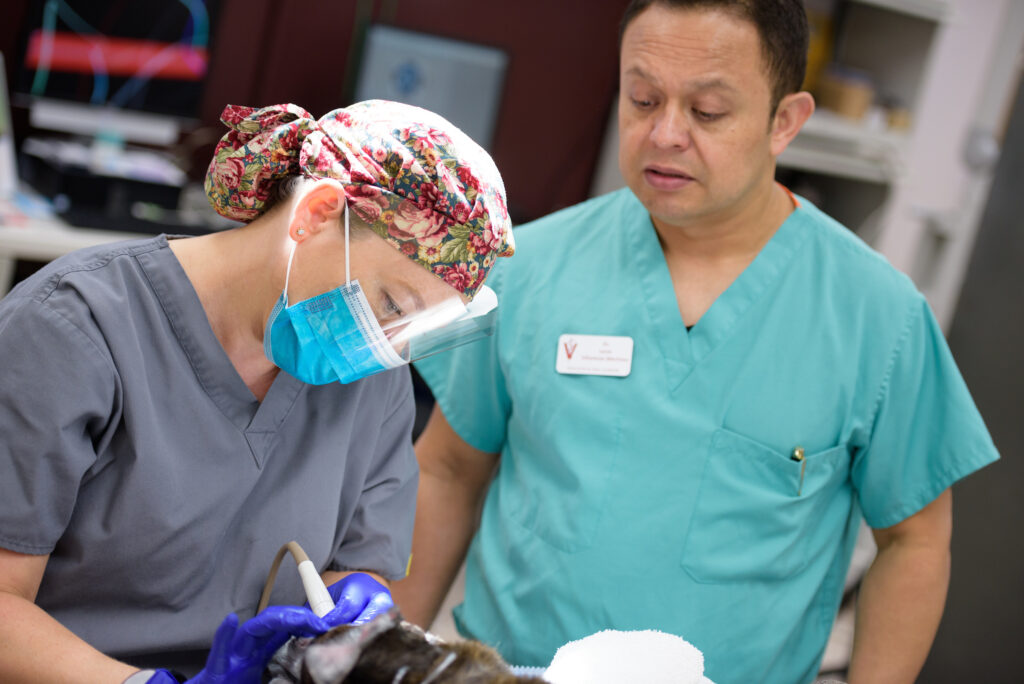
- Categories:

